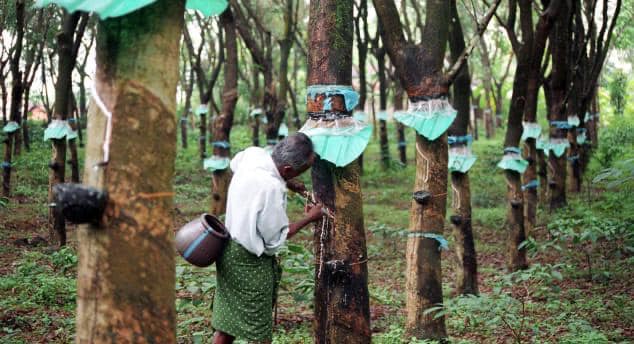There are no products in your shopping cart.
| 0 Items | £0.00 |


Ayo Akinfe
(1) Nigeria used to be the world’s sixth largest producer of natural rubber but now we are only number 12 with an annual output of about 150,000 tonnes. Rubber is a tropical crop that can only grow in the rain forest, so Nigeria has a competitive advantage here
(2) If you look at the leading producers, they are Thailand, Indonesia, Vietnam and India. All tropical countries and with this Covid-19 pandemic that has led to a boom in the demand for surgical gloves, all these nations are planning to expand their acreage to supply the market
(3) Back in the 1980s when HIV/Aids became an issue, the price of natural rubber went through the roof as the demand for condoms led to unprecedented demand. Countries like Indonesia and Thailand made billions from this boom but alas, Nigeria was fast asleep
(4) Nigeria has the unique advantage of being able to produce both natural and synthetic rubber, which is produced from crude oil. There is no reason whatsoever why we are not the world’s number one rubber producer with an output of about 2m tonnes
(5) Malaysia’s rubber industry is expected to grow by 6.5% to 33bn ringgit ($7.7bn) this year compared with 2019. Its rubber glove exports alone are projected to climb 15% to 20bn ringgit. Malaysia is expected to export 225bn pieces of rubber gloves globally and the country’s share of the global market is projected to increase from 62% to 65% this year
(6) Global demand for protective gloves is soaring in light of the coronavirus pandemic, driving Thailand's rubber glove exports to surge 16% year-on-year in the first four months of 2020. Shipments to markets with which Thailand has free trade agreements saw healthy growth. Exports to China rose 129.5% to $31m, followed by Australia (+79%, $9.6m ), Asean (+77.1%, $18.3m), South Korea (+55.3%, $7.9m) and India (+28.5%, $8.3m)
(7) Do you know Cambodia exported $22.17m worth of natural rubber to the international market in May this year? Everyone wants rubber gloves. Is there anything preventing Nigeria’s trade minister entering into a deal with the British National Health Service fir instance to supply it with 200bn rubber gloves over the next year?
(8) Apart from health products, natural rubber is widely used in the automobile industry, especially for tyre production. Do you know that in 1928, Ford negotiated a deal with the Brazilian government granting it a concession of 10,000 km2 of land on the banks of the Rio Tapajós near the city of Santarém, Brazil. Ford built a dedicated rubber plantation to supply its automobile plants in the US under a plan that would give Brazil 9% of the profits generated from the project
(9) This Fords project known as Fordlandia failed in Brazil because of the near slavery conditions attached to it. However, I think it is time to revisit it and have it relaunched under modern, humane and 21st century working conditions
(10) What stops any governor of one of Nigeria’s main rubber producing states like Ogun, Ondo, Edo, Delta, Anambra, Abia or Bayelsa from negotiating a deal with Ford, Nissan, Toyota, Peugeot, Land Rover or General Motors today? They are allowed to operate a 10,000 square kilometre plantation with 60% of the rubber going to their car plant, while Nigeria sells the remaining to the global health market. As you can see, our biggest problem is the poverty of thinking!